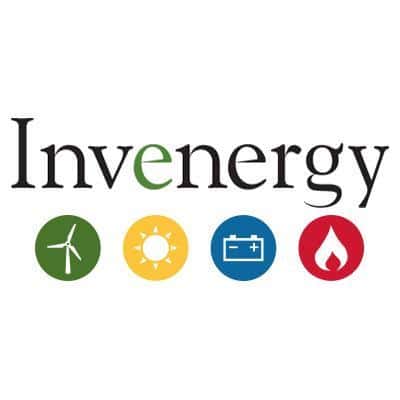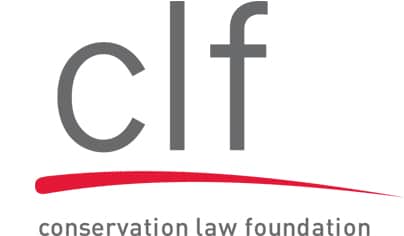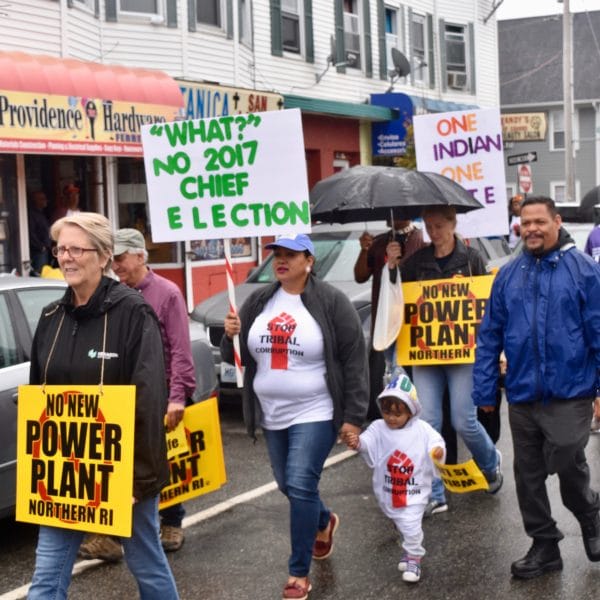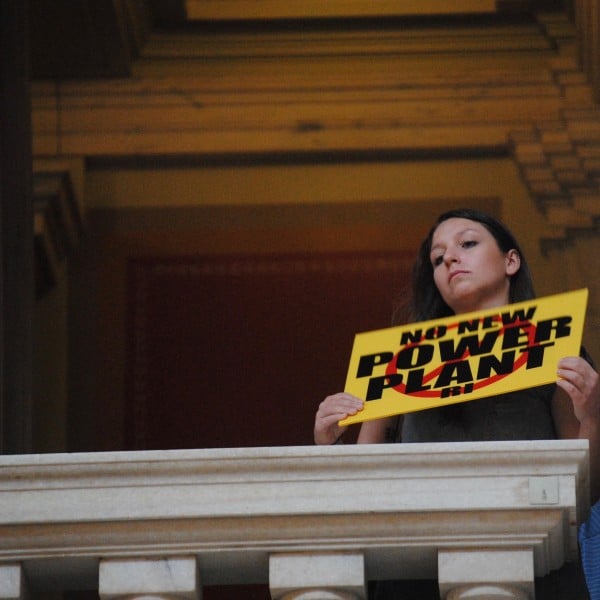Invenergy moves to block EFSB access to documents and the time to review them
Despite Invenergy’s claims to the contrary, the company’s application to build a $1 billion fracked gas and diesel oil burning power plant in the pristine forests of northwest Rhode Island has significantly changed, say lawyers from Conservation Law Foundation (CLF). When Invenergy filed its original application to the Energy Facilities Siting Board (EFSB) on October 29, 2015, the plans were
November 14, 2017, 7:05 am
By Steve Ahlquist
 Despite Invenergy’s claims to the contrary, the company’s application to build a $1 billion fracked gas and diesel oil burning power plant in the pristine forests of northwest Rhode Island has significantly changed, say lawyers from Conservation Law Foundation (CLF).
Despite Invenergy’s claims to the contrary, the company’s application to build a $1 billion fracked gas and diesel oil burning power plant in the pristine forests of northwest Rhode Island has significantly changed, say lawyers from Conservation Law Foundation (CLF).
When Invenergy filed its original application to the Energy Facilities Siting Board (EFSB) on October 29, 2015, the plans were for two turbines, both of which were qualified to participate in the Forward Capacity Market (FCM). The FCM is the process by which energy costs and supplies are determined regionally and three years in advance.
Now, Invenergy’s second proposed turbine has been disqualified from participating in the FCM. Power the company contracted to provide in previous market auctions is being reassigned to other providers. This disqualification may even result in Invenergy being unable to secure the financing it needs to build the proposed plant.
 Invenergy announced that the second turbine was disqualified from the FCM on November 1. CLF figured out that Invenergy had notice of the disqualification no later than October 1, 2017. Since October 1 was a Sunday, it is probable that Invenergy had notice earlier, in September. CLF determined this by looking at the ISO Tariff and calculating the time requirements. Invenergy has yet to admit or acknowledge this fact.
Invenergy announced that the second turbine was disqualified from the FCM on November 1. CLF figured out that Invenergy had notice of the disqualification no later than October 1, 2017. Since October 1 was a Sunday, it is probable that Invenergy had notice earlier, in September. CLF determined this by looking at the ISO Tariff and calculating the time requirements. Invenergy has yet to admit or acknowledge this fact.
Compounding the issue, not only did Invenergy sit on the fact of its disqualification for at least an entire month, Invenergy still has not disclosed the underlying documents from ISO-New England, the organization that manages energy in our region, explaining the decision. Instead, Invenergy had their expert witness, Ryan Hardy of PA Engineering, work on a response to this news for a full month. In that month Hardy worked to craft a response that put Invenergy’s failure into the best possible light. Hardy is paid by Invenergy for his opinions.
What CLF asked for in their motion was time to take discovery and conduct its own analysis as to why Invenergy was denied entry into the FCM. CLF wants access to the same underlying documents that Invenergy had access to.
 Invenergy objected to discovery, which would allow the EFSB and all parties access to communications between ISO-New England and the company. Invenergy says that the fact of the disqualification and Invenergy’s own analysis of the disqualification is all anyone needs to see.
Invenergy objected to discovery, which would allow the EFSB and all parties access to communications between ISO-New England and the company. Invenergy says that the fact of the disqualification and Invenergy’s own analysis of the disqualification is all anyone needs to see.
“The EFSB and the parties need to see the underlying correspondence and documents between the ISO and Invenergy pertaining to the disqualification,” writes CLF attorneys Jerry Elmer and Max Greene. “Of central importance, both to the EFSB and to the parties, will be Invenergy’s correspondence to the ISO seeking to dissuade the ISO from its disqualification determination.’ These are highly relevant documents that Invenergy has failed to disclose.”
“Today it is clearer than ever that Invenergy’s proposed fracked gas and diesel oil power plant proposal is not viable,” said Elmer in a statement. “The ISO, the operator of the New England power grid, has already disqualified one of Invenergy’s two turbines, and ISO will soon have the power to kick Invenergy’s other turbine out of the market. The ISO doesn’t need Invenergy’s electricity, and no one needs Invenergy’s carbon pollution.”
CLF made an addition request in their letter: That “the EFSB hire its own, independent, neutral, unbiased energy market financial analyst to assess this issue. EFSB Rules of Practice and Procedure 1.12(g) and 1.21(a) expressly provide that the EFSB may hire and hear such an expert witness at Invenergy’s – not taxpayers’ – expense.”
The disqualification of the second turbine from entering the FCM “will have consequences, and the EFSB is far more likely to credit the conclusions of its own, independent energy market financial analyst regarding the nature and extent of those consequences than it is to credit the opinions of any party – whether that party be Invenergy, CLF, or any other.”
UPDATE: Here’s the Town of Burrillville’s Reply Joining in the CLF’s Reply to Invenergy’s Objection to CLF’s Motion for Supplemental Advisory Opinions, Discover and Supplemental Expert Testimony and Joining in CLF’s New Motion for Appointment of an Independent Financial Analyst.






